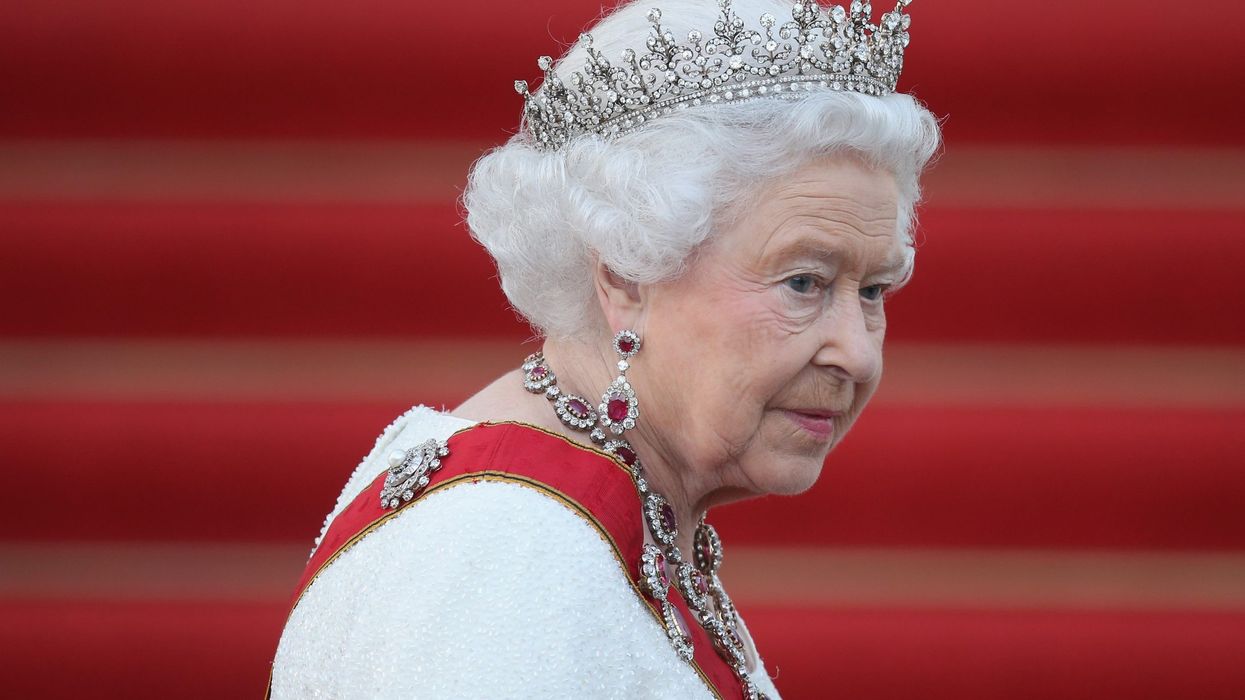Queen Elizabeth, Britain's longest-reigning monarch and the nation's figurehead for seven decades, died at her home in Scotland aged 96 on Thursday.
"The Queen died peacefully at Balmoral this afternoon," Buckingham Palace said in a statement. "The King and The Queen Consort will remain at Balmoral this evening and will return to London tomorrow."
Elizabeth's eldest son Charles, 73, automatically becomes king of the United Kingdom and the head of state of 14 other realms including Australia, Canada and New Zealand. His wife Camilla becomes Queen Consort.
News that the queen's health was deteriorating emerged shortly after midday on Thursday when her doctors said she was under medical supervision, prompting her family to rush to be by her side at her Scottish home, Balmoral.
The queen had been suffering from what Buckingham Palace has called "episodic mobility problems" since the end of last year, forcing her to withdraw from nearly all her public engagements.
Her last public engagement came only on Tuesday, when she appointed Liz Truss prime minister - her 15th premier.
At her palaces and at government buildings across London, flags were lowered to half-mast.
Queen Elizabeth II, who was also the world's oldest and longest-serving head of state, came to the throne following the death of her father King George VI on Feb. 6, 1952, when she was just 25.
CROWNED
She was crowned in June the following year. The first televised coronation was a foretaste of a new world in which the lives of the royals were to become increasingly scrutinised by the media.
"I have in sincerity pledged myself to your service, as so many of you are pledged to mine. Throughout all my life and with all my heart I shall strive to be worthy of your trust," she said in a speech to her subjects on her coronation day.
Elizabeth became monarch at a time when Britain still retained much of its old empire. It was emerging from the ravages of World War Two, with food rationing still in force and class and privilege still dominant in society.
Winston Churchill was Britain's prime minister at the time, Josef Stalin led the Soviet Union and the Korean War was raging.
In the decades that followed, Elizabeth witnessed massive political change and social upheaval at home and abroad. Her own family's tribulations, most notably the divorce of Charles and his late first wife Diana, were played out in full public glare.
While remaining an enduring symbol of stability and continuity for Britons at a time of relative national economic decline, Elizabeth also tried to adapt the ancient institution of monarchy to the demands of the modern era.
"She has managed to modernise and evolve the monarchy like no other," her grandson Prince William, who is now heir to the throne, said in a 2012 documentary.
RECORDS
Elizabeth was the 40th monarch in a royal line that traces its origin back to Norman King William the Conqueror who claimed the English throne in 1066 after defeating Anglo-Saxon ruler Harold II at the Battle of Hastings.
Her long reign meant she repeatedly broke records for British rulers. When she surpassed the more than 63 years her great-great-grandmother Queen Victoria spent on the throne, she said it was not a landmark to which she had ever aspired.
"Inevitably a long life can pass by many milestones - my own is no exception," she said.
Her marriage to Prince Philip lasted 73 years, until his death in April 2021, and they had four children, Charles, Anne, Andrew and Edward.
She never gave a media interview and critics said she came across as distant and aloof.
But for the vast majority of her subjects, for whom she was the only monarch they have known, she was a figure who commanded respect and admiration. Her death marks the end of an era.
"In her public duties she was selfless and wise, with a wonderful generosity of spirit. That is how she lived – and how she led," former Prime Minister John Major said.
"For millions of people – across the Commonwealth and the wider world – she embodied the heart and soul of our nation, and was admired and respected around the globe."
Opinion polls have suggested that Charles does not enjoy anywhere near the same level of support and there is speculation that the loss of Elizabeth may see a rise in republican sentiment, particularly in the other realms.
"I think it will be an enormous shock to everybody, much more than they realise. I don't know if it's an exaggeration to think there will be some sort of almost national nervous breakdown," royal historian Hugo Vickers said.
He said her reign was unlikely to be rivalled.
"I think to be quite honest, if we lived 1,000 years, we would never see anything quite like it again."
At her death the queen was head of state of not only the United Kingdom but also of Australia, the Bahamas, Belize, Canada, Grenada, Jamaica, New Zealand, Papua New Guinea, Saint Lucia, Saint Kitts and Nevis, Tuvalu, the Solomon Islands, Saint Vincent and the Grenadines, and Antigua and Barbuda.
(Reuters)




